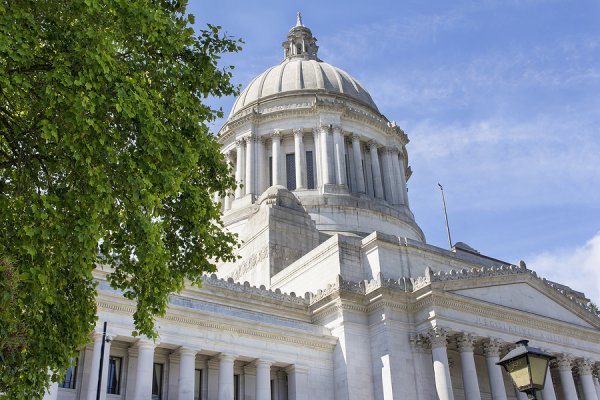The Washington State Legislature passed SB 5415, the “Washington Indian Health Improvement Act,” unanimously through both chambers in the 2019 legislative session. The new bipartisan law will direct funds resulting from a recent federal policy change towards efforts that look to improve the health of American Indians and Alaska Natives of the 29 tribes in Washington State.

The Morning Wire: Keeping you informed on politics, policies, and personalities of Washington State.
“According to the northwest tribal epidemiology center and the department of health, American Indians and Alaska Natives in the state experience some of the greatest health disparities compared to other groups…” the bill reads.
Through Medicaid, the federal government matches 100% of the Federal Medical Assistance Percentage (FMAP) that states spend on covered services at Indian Health Services and tribal health care facilities. According to the act’s bill report, states were previously reimbursed at a typical FMAP rate — between 50% and 90% — for Medicaid services at other providers for the same population.
However, the federal government updated its payment policy in 2016, in part bridging the gap between services provided to the population at IHS and tribal health care facilities and other types of facilities. So, if a provider at one of the IHS or tribal health care facilities enters a care coordination agreement with another Medicaid provider, certain services there can also be matched at 100% FMAP.
This law plans to take advantage of the new state savings that result from the federal policy change by establishing a Reinvestment Account, where the money will be deposited.
“New state savings” refers to the savings to the state General Fund that are achieved as a result of the policy change and related guidance: the difference between Medicaid payments based on 100% FMAP, and what the payments would’ve been if the policy change never happened.
The act creates the Governor’s Indian Health Advisory Council that is made up of a representative of each tribe or urban Indian organization in the state, the CEOs of two Urban Indian Health Programs, four legislative members from the majority and minority caucuses in the House and the Senate, and one member from the Governor’s Office. The council will establish the Reinvestment Committee, which will construct an Indian Health Improvement Advisory plan.
In his testimony on the Senate floor, Sen. John McCoy, who prime-sponsored the bill, stated, “As it went through the process, there were three items that stick out to mine on this piece of legislation, that one: any investment on health care is a good investment and the three reasons why I believe that it should be supported is that it improves health care access, saves money, and builds the program.”
The law provides a list of all possible services and programs that could be added through these savings. With the new funds, the money in the Reinvestment Account may go to services and programs that include:
- A third-party administrative entity to provide and make payment for services for American Indians and Alaska Natives
- Supporting health care services that work to reduce health inequities and increase access to culturally-appropriate health care for American Indians and Alaska Natives
- Increasing federal funding for substance use disorders and mental health services
- More facilities that provide treatment and recovery services for substance and opioid use disorder, mental illness, and specialty care
You can find more information on the bill here and the full bill here.
This article was cross-posted on our sister site, State of Reform.
Your support matters.
Public service journalism is important today as ever. If you get something from our coverage, please consider making a donation to support our work. Thanks for reading our stuff.



